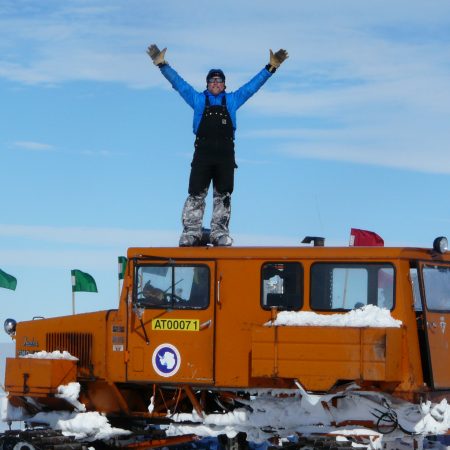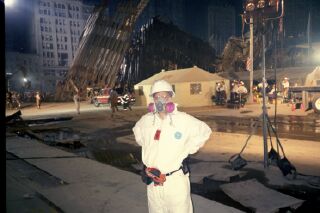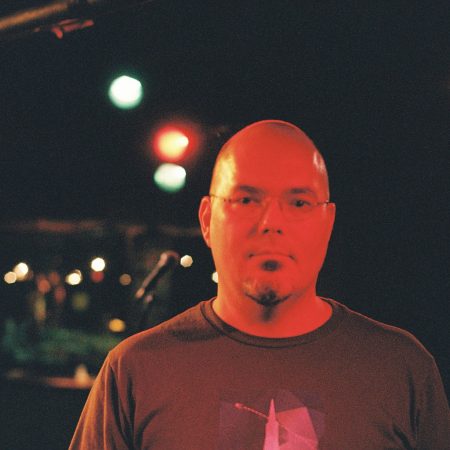Refine
Date Range Clear
Recorded by Clear
Keywords Clear
- volcanolgy 166
- #AGU100 166
- Venus 166
- mars 166
- Future 166
- future of science 166
- #AGU 163
- NASA 58
- discovery 55
- #womeninscience 29
- Advice 26
- Collaboration 21
- Community 21
- 376 more
Partnerships Clear
- No matching terms.
Organizations Clear
- American Geophysical Union 34
- National Aeronautics and Space Administration 8
- The American Geophysical Union 4
- American Geopysical Union 3
- NASA 2
- 12 more
Places Clear
- Washington DC 167
- AGU 2018 Fall Meeting 157
- AGU Fall Meeting Program Commitee 3
- Leadership Development Commitee 2
- AGU 100 Fall meeting 1
- 3 more
Languages Clear
- No matching terms.
Initiatives Clear
- No matching terms.
Space Plasma physicist, Daniel Verscharen of the Mullard Space Science Laboratory - part of University College London based in the Surrey countryside - is drawn to fast things- fast moving electrons in space plasma and a fast timeline to propose...
Roberta Rudnick, Professor at University of California Santa Barbara, was captivated by science from a young age, witnessing the Mt. Saint Helens eruption while in college, and traveling the globe to understand plate tectonics, and how and why continents form...
We won’t say how long Susan Lozier has been shaping young minds at Duke University (she may let it slip), but she talks about amazing changes that have happened during her tenure. She grew up wondering how rivers get polluted,...
In this inspiring interview, Becca Barnes, Bianca Rodriguez-Cardona, Evelyn Valdez-Ward, and Ben Sulman, four early-career biogeoscientists come together to share their reflections on what it means to be a scientist today. How can scientific knowledge be spread on social media?...
While Patrick Taylor spends a huge chunk of his time in the clouds, his work has nothing to do with daydreaming. The Research scientist at NASA’s Langley Research Center is working on understanding more about the role of clouds in...
As a child, Luke Oman was always looking out the window. Today, he works on atmospheric processing for NASA. How do volcanic eruptions affect everyday life? What happens when sulfur dioxide gases from volcanoes interact with sulfate aerosol and stay...
The potential downside of a career in always seeking discoveries is that it may stunt the development of your confidence. Even as someone who walked into NASA, living the dream in his mind, Nathan Kurtz experiences that downside, politely calling...
Woody Turner, the program scientist for biological diversity and manager for ecological forecasting programs at NASA, and one of the few people in the world who directly harness the power of space to solve a whale of a problem –...
Chris Atchison didn’t set out to create a project tailored for students with physical and sensory disabilities but ending up doing so anyway. He talks here about working on a virtual reality project and, when trying to find students who...
William Putman, research meteorologist with NASA , was always fascinated by the way meteorologists on television could predict what was going to happen. But instead of comparing weather reports with the blowing of the trees outside his house, Putman now...
How did Biogeoscience become a recognized field of study, with its own journal and sections at AGU? What obstacles did its organizers have to overcome in order to make it a viable field and a welcome presence at AGU? In...
Seismologist Lucy Jones gained recognition for doing a TV interview following the 1992 Joshua Tree earthquake while holding her sleeping infant son. Long before that, she became one of the first American scientists to enter China after it’s normalization in...
Erin Robinson is the Executive Director of the Earth Science Information Partners (ESIP). She knew from early on that she was interested in science and her field of remote sensing, from good science teachers in middle and high school to...
The next time you see a young kid skateboarding through the neighborhood, possibly listening to punk rock on their earbuds, remember that one day that kid could be your local science professor. Doug Jerolmack’s sturdy voice and love of experimenting...
Sandra Cauffman was told growing up in Costa Rica that she couldn’t be an electrical engineer because she was a woman. Decades into a career which has largely involved getting her hands dirty building instruments to fix on spacecraft, the...
Miguel Román, a Physical researcher Scientist at NASA's Goddard Space Flight Center, shares his journey from his childhood in San Juan, Puerto Rico to NASA. Seeing the impacts of hurricanes and urban growth where he grew up, and the practical...
Emily Wolin is almost singe-handedly trying to upgrade Myanmar’s national seismic network. As a student, Emily saw the Mount Saint Helens eruption. Today, she helps scientists in Myanmar prepare their country for the aftermath of the next hurricanes to come...
The start of a fruitful career for Richard Eckman was being on a team which discovered that the stratosphere and ozone varied in relation to the sun’s 27-day rotation. Eckman, who now works with NASA’s Atmospheric Composition Modeling and Analysis...
Michael Freilich, Director of NASA's Earth Science Division, shares about his life studying the oceans and Earth as a system. While still in his high school's oceanography club, he started exploring a question about how waves move that later became...
Scott Tyler, hydrology engineer at the University of Nevada Reno and AGU Hydrology section president, shares his work on Antarctic ice shelves, nuclear waste, and stream restoration. Do we need to build sea walls in ten years or in one...
In the mid-1990s, the town of Libby, MT, discovered they had a serious problem. The small town of fewer than 3000 people had reported over 300 fatalities from asbestos contamination. Enter Aubrey Miller, from the EPA, and Geoff Plumlee, from...
Daniel Minguez, a geophysicist for Chevron, helps create new geologic models of the earth’s layers, trying “to build geologic stories for how different geologic elements got there.” Daniel discusses his work which focuses on boring techniques and navigating plate tectonics....
Sprites are electrical discharges like lightning, but up in the middle atmosphere. Having only been in the scientific literature since the 1990s, sprites captured Geoff McHarg’s imagination while observing the Aurora in Alaska. Perfect for a guy whose view of...
David Young, Director of Science at NASA Langley Research Center, discusses his life's work studying the earth's climate. After an early interest in astrophysics, he focused in on earth science due to his desire to do research to help humans....
Richard Johnson is an AGU member who has been coming to Fall Meeting for years. He discusses some of the keynotes he’s attended in recent years, like those by Jerry Brown, Elon Musk, and Dan Rather. A sci-fi enthusiast, Richard...
!["[It is] not just working on something for yourself but that this all fits into a bigger picture." an interview with Daniel Verscharen](https://archive.storycorps.org/uploads/2019/03/181212_Verscharen-450x450.jpg)



!["Something I learn today is something that [could help] society tomorrow." an interview with Patrick Taylor](https://archive.storycorps.org/uploads/2019/02/181211_PatrickTaylor-450x450.jpg)

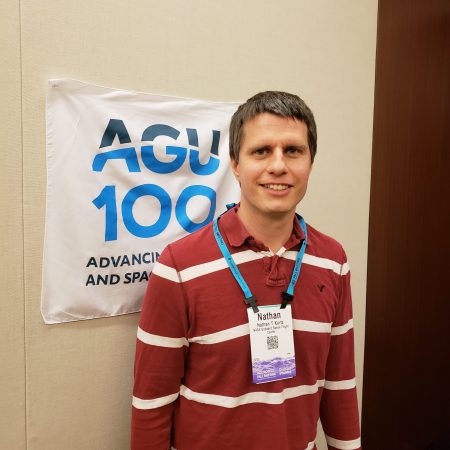

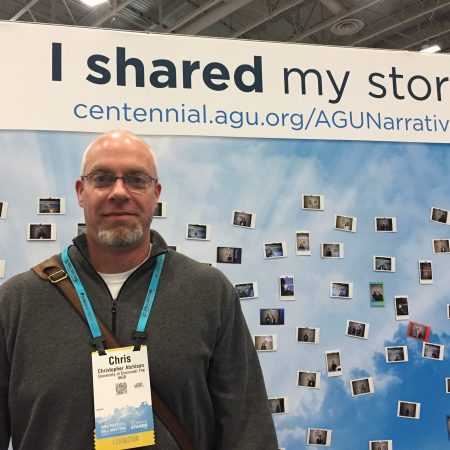
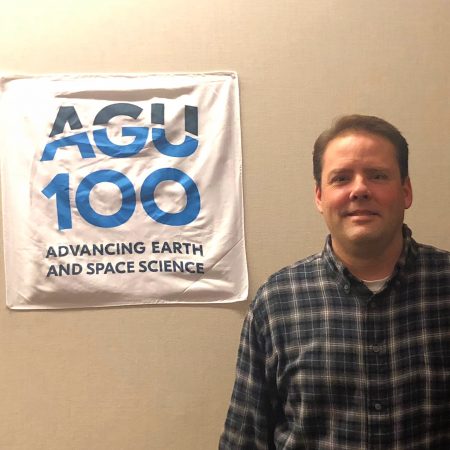

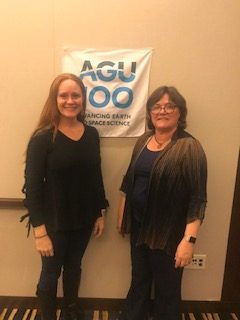

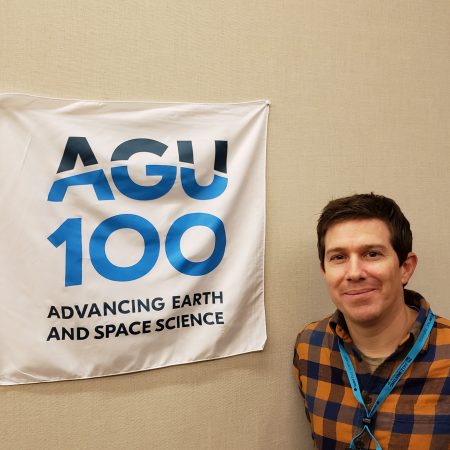


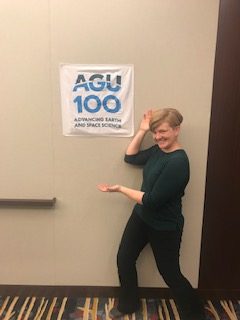

!["I joined an Oceanography club & actually asked the question that ended up [being] my thesis." an interview with Michael Freilich](https://archive.storycorps.org/uploads/2019/02/181212_Freilich-450x450.jpg)
